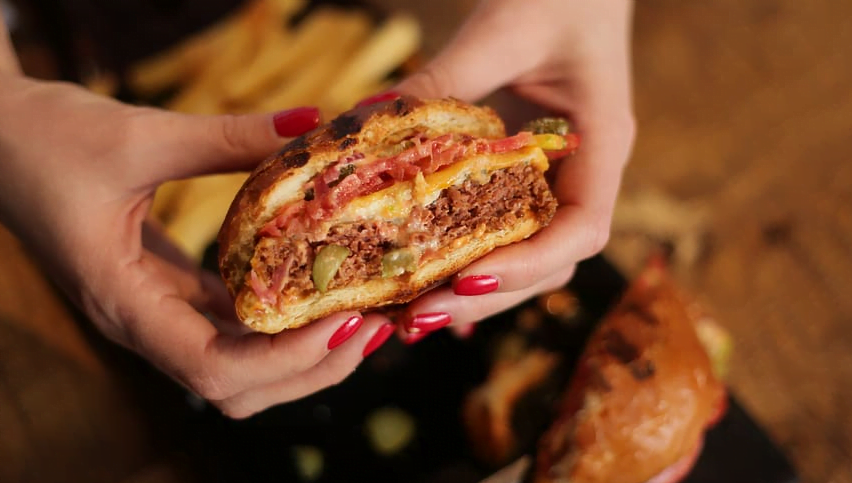Impossible Foods Secures More Funding, Partners with OSI Group to Scale
by Mashum Mollah Business Published on: 04 May 2020 Last Updated on: 28 August 2020

Last summer, Impossible Foods announced its partnership with OSI Group. As one of the largest food producers, OSI has the capability to help increase Impossible Foods’ production, which will help this innovative company scale to meet the demand for its meatless products.
In 2011, Dr. Patrick O. Brown founded Impossible Foods to make a sustainable meat alternative from plants using modern science and technology. Brown drew from his background as a Stanford biochemistry professor and pediatrician. He remains active as founder and CEO.
Impossible Foods currently has contracts with a variety of individual restaurants, institutions like employee cafeterias, and college campus dining halls. Over 10,000 restaurants sell Impossible Foods products worldwide.
Rapidly Scaling to Meet Increasing Demand
The increased demand for meat-free alternatives led to partnerships with large corporate customers including Burger King, White Castle, Red Robin, Cheesecake Factory, and Qdoba.
The Burger King launch caught national attention when the international fast-food chain launched a market test of the meatless Whopper in their St. Louis outlets in April 2019. After completing the test, Burger King launched the Impossible Whopper in outlets throughout the United States in August 2019.
Food Processing speculated that Impossible Foods wouldn’t be able to keep up with producing enough products to supply Burger King in addition to their other restaurant partners without increasing manufacturing capability.
In addition to expanding interest from restaurant partners, the Impossible Burger 2.0 caused a splash at the Consumer Electronics Show (CES) in January 2019. Ever since, sales have rapidly increased, causing the food-tech start-up to triple production within just a few months of the CES.
As demand continues to grow, OSI Group is primed to offer a solution. Based in Aurora, Ill, OSI Group has an extensive network that includes more than 65 facilities in 17 countries. This means the company comes with a worldwide production and distribution system.
“We look forward to lending our expertise to Impossible Foods as it embarks on one of the most ambitious startups in the food industry,” said Kevin Scott, Senior Executive Vice President, OSI North America. “At the same time, Impossible Foods will help fulfill the OSI Group’s commitment to sustainable food production — one of the core prisms through which OSI management makes operational decisions.”
What’s Next for the Meatless Industry?
On March 16, 2020, Impossible Foods confirmed they secured an additional $500 million in funding to expand the company’s retail presence, invest in research, and commercialize next-generation products like Impossible Sausage and Impossible Pork.
Mirae Asset Global Investments led the March round of investments along with existing investors like Khosla Ventures, Horizons Ventures, and Temasek. Impossible Foods has raised nearly $1.3 billion since its founding.
The combination of the increased manufacturing capacity through the partnership with OSI Group, and the increased funding, positions Impossible Foods to work towards its goal of exponentially increasing production every year while continuing with research and innovation.
“To do that, we need to double production every year, on average, for 15 years and double down on research and innovation,” said Brown. “The market has its ups and downs, but the global demand for food is always there, and the urgency of our mission only grows. Our investors not only believe in our mission, but they also recognize an extraordinary opportunity to invest in the platform that will transform the global food system.”
Impossible Foods’ partnership with OSI Group also enables the food-tech company to expand its retail and grocery store presence.
In July 2019, Impossible Foods received FDA acceptance as “generally recognized as safe” (GRAS). Since Impossible Foods uses soy leghemoglobin in the Impossible Burger, FDA approval was required before making the products available in grocery stores.
Before declaring the Impossible Burger as “GRAS,” the FDA reviewed research and test data about the ingredient soy leghemoglobin, also known as heme, and determined it is compliant with food-safety regulations and could be considered safe to eat.
Impossible Foods products are now available in grocery stores around the United States including Safeway, Albertsons, Wegmans, Fairway Market, and others.
Rival company Beyond Meat Inc. is also rapidly expanding. Within three months of launching its IPO, share prices for Beyond Meat, Inc. grew 700 percent. If this is any indication, the future of meat-free products faces more competition and increased product variety for consumers.
Read Also:



































































































